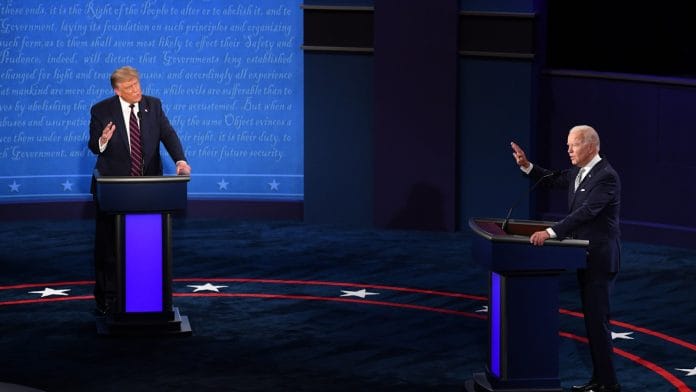Bloomberg: Iranian hackers accessed voter registration data in one state and attempted to access more in a series of targeted attacks dating back to September, according to a U.S. government cybersecurity advisory.
The FBI and the Cybersecurity Infrastructure Security Agency — a unit of the Department of Homeland Security — revealed Friday that the attack was an effort to “influence and interfere” in the 2020 presidential election. The agencies said the attack was executed by the same group of Iranians that sent faked, threatening emails targeting Democratic voters earlier this month.
The agencies didn’t disclose which state was breached.
The stolen data was used in a propaganda video that was distributed along with many of the threating emails, the agencies said. The messages were received by about 3,000 Democratic voters from email addresses falsely linked to the right-wing Proud Boys group.
The emails threatened recipients with violence if they didn’t vote for President Donald Trump. The video claimed to show that the attacker was also submitting fake ballots in various locations in the U.S. Director of National Intelligence John Ratcliffe announced the fake email effort last week and identified it as an Iranian attack that had nothing to do with the Proud Boys.
The break-in reported Friday preceded the email campaign and occurred in two phases, the agencies said. The attackers first used a legal web scanning tool called Acunetix from Sept. 20 to Sept. 28, and then engaged in more conventional hacking techniques from Sept. 29 to Oct. 17 to try penetrating the targeted state systems, according to the advisory.
The attack appears to mimic efforts by Russian hackers in 2016 to breach voter registration databases. They successfully hacked a copy of Illinois voter data in the sumer of 2016, before going on to access two Florida counties before the November election.
U.S. intelligence reports said there was no evidence that the 2016 hacks explicitly changed votes or altered any voting data. -Bloomberg
Also read: Young voters likely to break 2008 US election record, play key role in swing states






